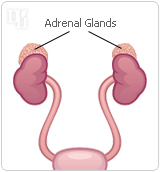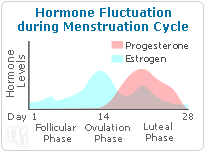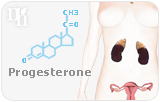When it comes to hormones, most women are familiar with the female hormone, estrogen. However, most women know little about another hormone working behind the scenes to keep their bodily functions and processes working properly — progesterone. Continue reading to find out what progesterone is and why it's important to your general health and well-being.
What Is Progesterone?

Progesterone is a steroid hormone, meaning that it is derived from cholesterol. It is produced in and secreted by the adrenal gland. Hormones are chemical messengers that travel through the bloodstream and regulate the metabolism. All of the body's processes are commanded by these hormones, meaning that they influence everything from energy and vitality to menstruation, fertility, and sexual function. Click here to read more about what progesterone is or continue reading below to learn about progesterone's role in the menstrual cycle.
Working in Pairs: Progesterone, Estrogen, and the Menstrual Cycle
While progesterone plays a role in regulating numerous bodily functions and processes, its most important contribution to the female reproductive system is helping to prepare the uterus for a fertilized egg each month.

The menstrual cycle is divided into two phases — the follicular phase and the luteal phase. Progesterone makes its debut in the latter phase, when high levels of the hormone are secreted to thicken the lining of the uterus in preparation for a fertilized egg. If the egg is not fertilized, progesterone levels decrease and the uterine lining sheds, triggering the start of the menstrual cycle.
The Effects of Progesterone
Progesterone influences nearly every cell, organ, and function in the female body. Here are just a few of the effects of progesterone:

- Mood. Progesterone is thought to influence mood through its interaction with the neurotransmitter, serotonin.
- Sexual function. Increased progesterone levels lead to a boost in libido just before menstruation. It also helps to form vaginal mucus that protects the body from infection.
- Bone health. Progesterone stimulates the formulation of new bones and promotes bone density.
- Immune system. Progesterone helps to boost levels of anti-inflammatory agents, which contribute to a healthy immune system.
- Weight. Progesterone converts stored fat into energy.
Click here to read more about the effects of progesterone.
Recommendation
Because progesterone impacts virtually every function in the body — from mood and metabolism to energy, vitality, and sexual function — the surplus or deficiency of progesterone can trigger a range of uncomfortable side effects in women. Click here to read more about the side effects of progesterone imbalance.

